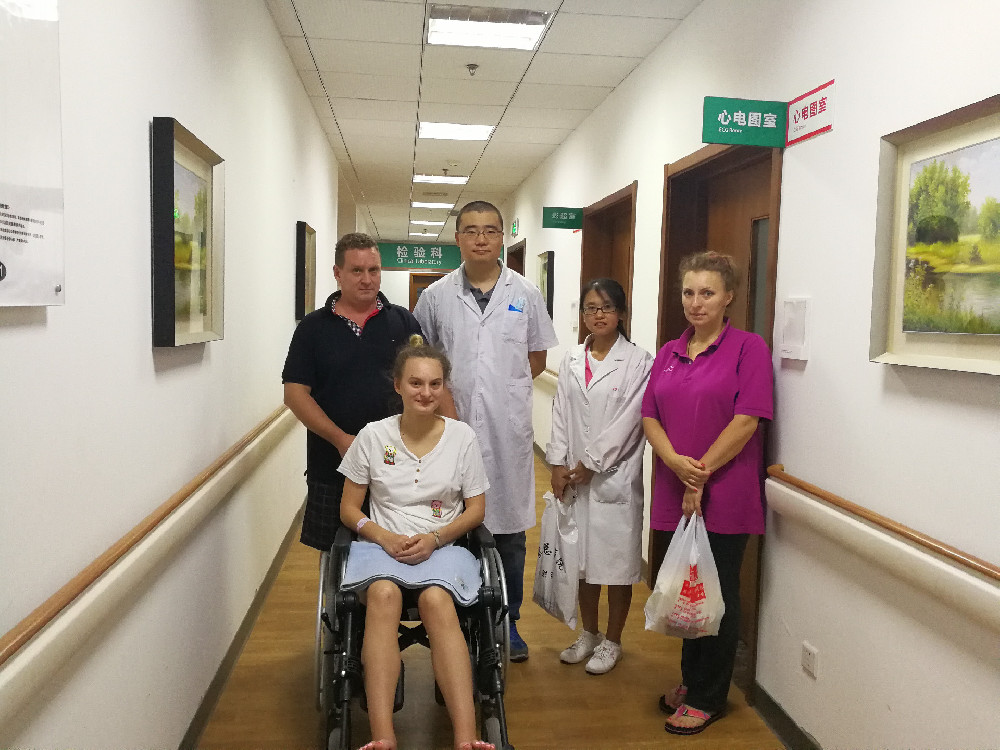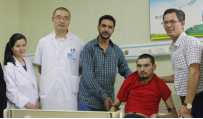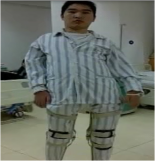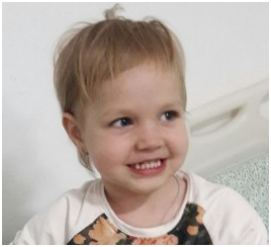
In the fateful month of October 2016, a heart-wrenching incident unfolded. A two-year-old child, full of innocence and the promise of a bright future, was suddenly caught in the crosshairs of a terrifying traffic accident. The little girl's life hung in the balance, but immediate and heroic rescue efforts were launched. Miraculously, after the harrowing ordeal, the girl's basic vital signs stabilized, and consciousness remained clear, offering a glimmer of hope.
However, the aftermath painted a grim picture. The second cervical vertebra was fractured, like a delicate piece of porcelain that had been cruelly shattered. The T1-T2 segments were injured, disrupting the body's complex neurological network. To make matters worse, the function of the pelvic organs was severely damaged, casting a long shadow over the child's quality of life and future development. Therefore, it is extremely urgent to initiate the treatment without delay. This is the key to seizing the golden rehabilitation period, maximizing the restoration of the child's physical functions, and ensuring her healthy growth.
1. Loss of body temperature regulation: legs and feet are always cool;
2. Obvious desquamation: on legs and feet;
3. Waist strength: unable to straighten, requires external help to sit;
4. Poor eating and sleeping habits;
5. Reluctant to communicate with others.
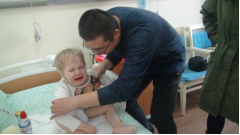
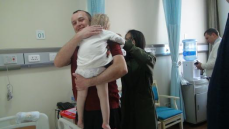
Outcomes After the First Course of Treatment
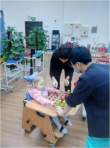
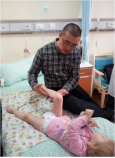

Outcomes After the Second Course of Treatment
1. Lower limb skin temperature is normal, with slight sweating function recovery.
2. Waist strength is significantly stronger, can do waist - lifting actions and straighten the waist.
3. Leg nerves recovered, and the waist feels warm.
4. Leg desquamation has improved.
5. Can sit independently for a few minutes.
6. Appetite has increased substantially and is more active.
Progress Summary & Future Outlook
Before treatment, the patient had issues like loss of body temperature regulation, obvious leg and foot desquamation, weak waist, poor eating and sleeping habits, and reluctance to communicate. After the first course of treatment, there were positive changes: sweating function recovery, significantly stronger waist, improved leg desquamation, sit independently, a greatly increased appetite, and more activeness.
Based on the positive results of the first treatment course, continued treatment and rehabilitation are likely to bring further improvements. Future treatment could focus on:
• Enhancing organ function
• Strengthening motor function
• Sensory function improvement
• Psychological and social development
• Preventing complications
More detailed stories about Katya’s treatment (click here)
The Miracle of Life
Katya, a little girl from Akhterka, Sumy State, Ukraine. Little Katya was the crystallization of the love of her parents. Her father was an auto repair worker at the auto repair shop. Her mother was a sewing worker. The little girl was very smart, lovely and also naughty. Like all parents, they were looking forward to Katya’s healthy and happy growth. Her father told us that Katya began to walk when she was only one year old. She once fell off the stairs, but nothing happened.
In October 2016, the little girl and her parents ran into a drunk driver on the way home. Due to the fast speed, the misfortune happened in this family. Because of this accident, Katya’s mother sewed 20 stitches on her forehead, while little Katya was only 1 year and 4 months, she almost lost the chance of survival. What was worse, the driver of the accident still did not get a punishable punishment. Many doctors were reluctant to do any treatment for Katya. As they thought her life was hopeless. Thanks for god, Dr Baville was willing to try to save Katya, and the stubborn little Katya was miraculously resurrected with Dr Baville’s help. However, the car accident caused T1-T2 spinal cord injury. She can not live as before. Instead of walking, she can only lie on the bed or baby carriages. In order to get fully treatment, Katya’s parents actively sought major media and fundations for help as they were lack of money.
One day in August 2017, Katya’s mother learned about stem cell treatment could help Katya through the fundraiser and met one mother of the cerebral palsy who was ever accepted three times stem cell treatment in our hospital. After that, they actively tried all means to raise money for stem cell treatment. On November 13, 2017, Katya and her parents and Dr Baville came to Beijing to receive stem cell treatment. During the treatment period, Dr Cheng communicated with Dr Baville for details of Katya’s conditions and treatment. Little Katya became more lively and lovely after treatment. Her appetite increased greatly. We expect that stem cell can bring Katya moremiracle of life!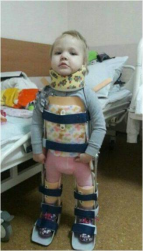 (pic 7)
(pic 7)

